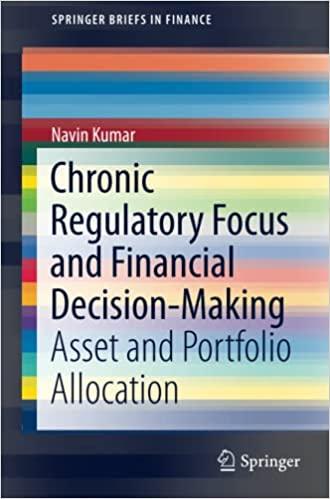Question
5) To pay for college, you have just taken out a $1000 government loan with a fixed annual payment of $300 per year for 5
5) To pay for college, you have just taken out a $1000 government loan with a fixed annual payment of $300 per year for 5 years. You don't make your first payment until you graduate 2 years from now. (In other words, you make payments after years 2 through 6). How much are you implicitly paying on this loan (i.e. calculate the YTM)?
6) If there is a decline in interest rates, which would you rather be holding: long term bonds, or short-term bonds? Why? Which type of bond has greater interest-rate risk?
7) A company offers its unionized employees either a) a one-time up-front $1500 per-employee bonus, or b) a permanent $250/year raise (paid at the end of each year) and a one-time $500 retirement bonus (paid on the employees last day of work). Assume the average worker has 5 years left until retirement. Which option should the average worker favor if
:i) i = .05
ii) i = .1
Step by Step Solution
There are 3 Steps involved in it
Step: 1

Get Instant Access to Expert-Tailored Solutions
See step-by-step solutions with expert insights and AI powered tools for academic success
Step: 2

Step: 3

Ace Your Homework with AI
Get the answers you need in no time with our AI-driven, step-by-step assistance
Get Started


